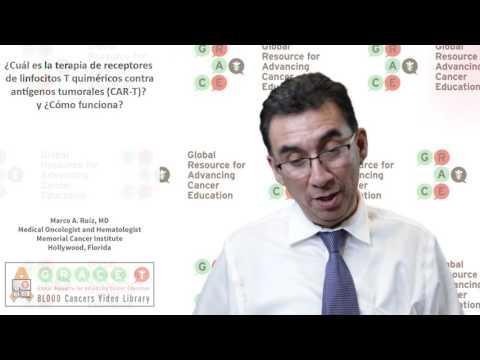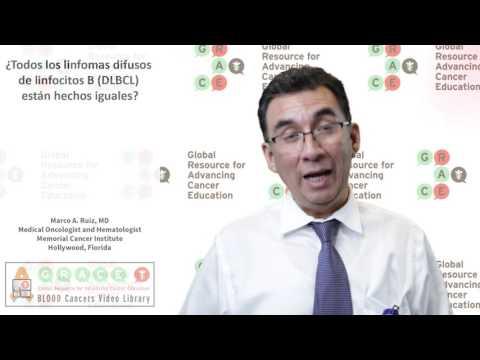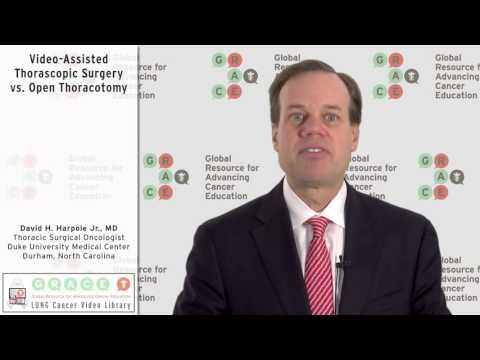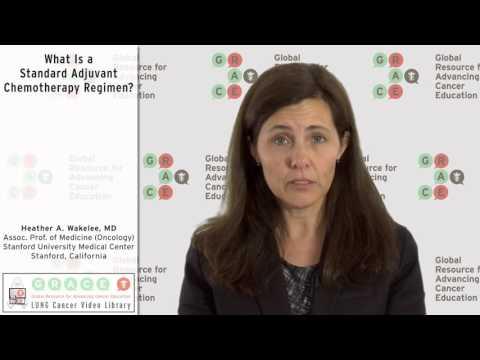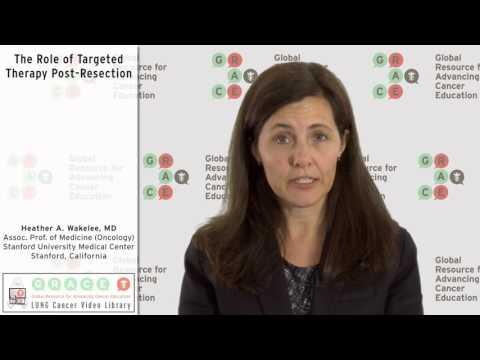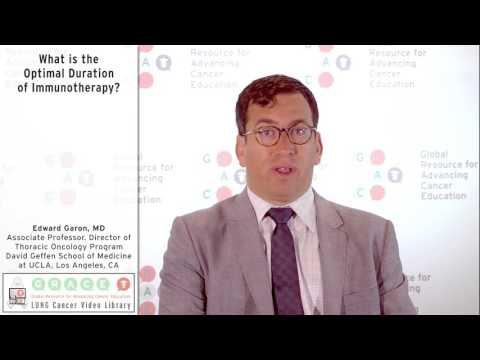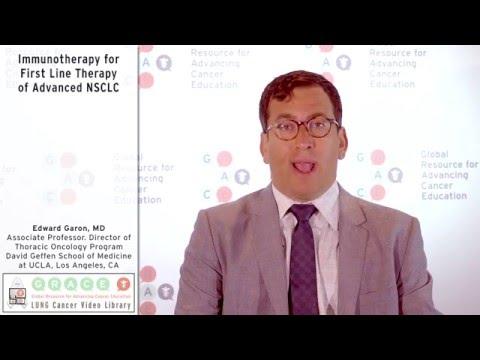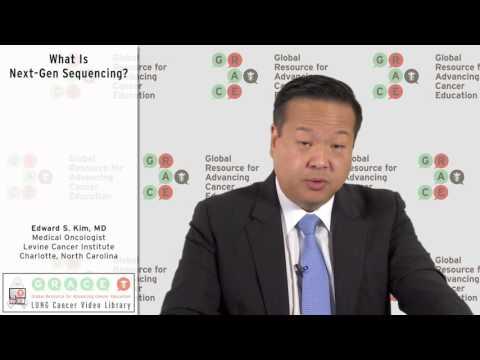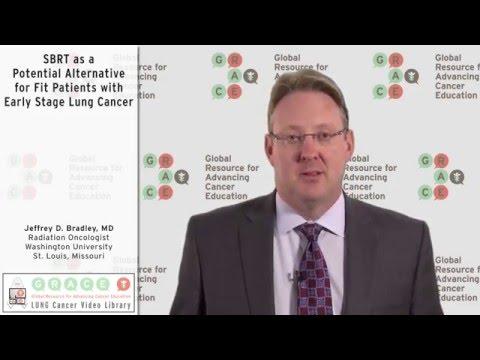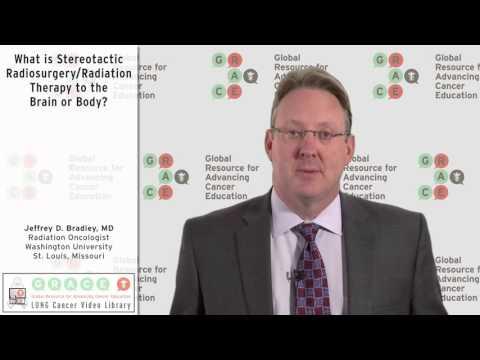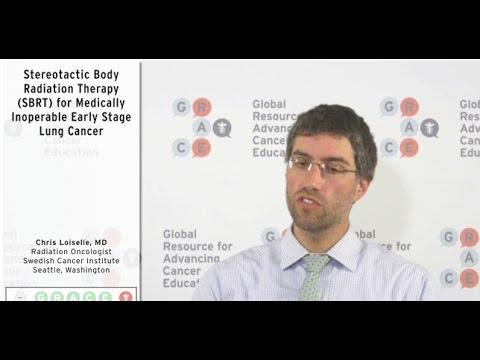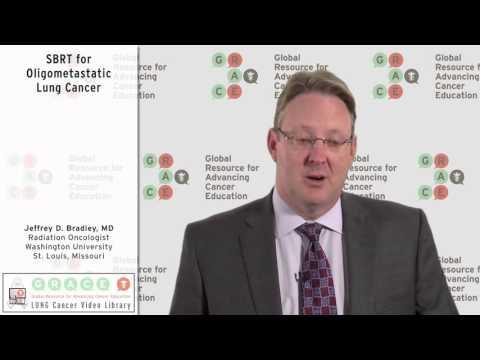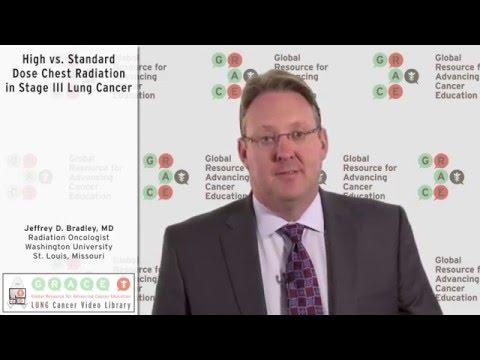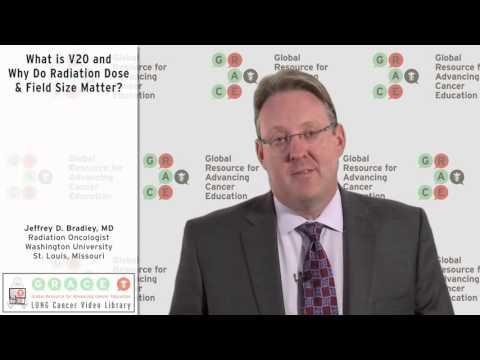GRACE sat down with Dr. Marco Ruiz to discuss information regarding the chimeric T cell receptors treatment against tumoral antigens (CAR-T) and how it works (¿Cuál es la terapia de receptores de linfocitos T quiméricos contra antígenos tumorales (CAR-T)? y ¿Cómo funciona ?). Stay tuned for more on
Video Library
Search the Video Library
Video Language
Filter by Cancer Type:
Displaying Results 16 - 30 of 108
GRACE is pleased to present updates in blood cancer treatments for our Spanish Blood Cancer Library with Dr. Marco Ruiz. Dr. Ruiz shares information regarding Chronic Lymphocytic Leukemia & Non-Hodgkin Lymphoma, (Leucemia crónica linfocítica y linfoma no Hodgkin)., specifically "Are all diffuse
Dr. David Harpole, Duke University Medical Center, describes how he assists patients with the surgical decision-making process.
Transcript Historically, lung cancer has been treated with a large incision between the ribs, and in the early-mid ‘90s we began to investigate uses of the laparoscope, which was used to do gallbladders and so forth, in the chest. So we began using the devices to do more limited resections with this
Dr. Heather Wakelee, Stanford University Medical Center, lists standard adjuvant chemotherapy regimens, comparing their administration and uses.
Dr. Heather Wakelee, Stanford University Medical Center, evaluates the lack of evidence for the use of targeted therapies after surgery, and describes ongoing trials attempting to resolve that issue.
UCLA Med Center's Dr. Eddie Garon discusses the open question of the optimal duration of ongoing treatment with immunotherapy for lung cancer.
Dr. Eddie Garon considers the data on immunotherapies for first line treatment of advanced NSCLC and whether we are likely to use these agents instead of or in combination with standard chemotherapy soon.
Dr. Ed Kim from the Levine Cancer Institute in Charlotte, NC summarizes the mechanism of next generation sequencing (NGS), how it can potentially be used, and its limitations in clinical practice today.
Dr. Jeffrey Bradley, Radiation Oncologist at Washington University in St. Louis, provides evidence for the use of stereotactic body radiation therapy as an alternative to surgery for operable early stage lung cancer.
Dr. Jeffrey Bradley, Radiation Oncologist at Washington University in St. Louis, describes the use of stereotactic radiosurgery and stereotactic radiation therapy.
Dr. Jeffrey Bradley, Radiation Oncologist at Washington University in St. Louis, describes the history and current use of stereotactic radiation therapy for inoperable lung lesions.Dr. Jeffrey Bradley, Radiation Oncologist at Washington University in St. Louis, describes the history and current use
Dr. Jeffrey Bradley, Radiation Oncologist at Washington University in St. Louis, defines oligometastatic lung cancer and describes the recent trend toward the use of stereotactic body radiation therapy to treat it.
Dr. Jeffrey Bradley, Radiation Oncologist at Washington University in St. Louis, provides trial evidence showing that patients may not benefit from high dose chest radiation therapy vs. standard dose therapy.
Dr. Jeffrey Bradley, Radiation Oncologist at Washington University in St. Louis, defines the V20 standard for lung radiation and outlines the advantages of limiting dose and field size in lung radiation therapy.

